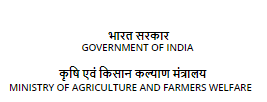NINFET Jaiveek Sathi: Softening of Barky Root Cuttings
Background:
Jute is the second most important natural fibres grown in India. It sustains more than 4 million people in the country. However, improper retting of jute often produces inferior quality of fibres, and farmers suffer huge economic losses (Ray et al. 2015a; Ray et al. 2015b, Ray et al. 2016). Due to improper retting, a large quantity of jute fibre produced in India in the water scarce areas are of very inferior quality having 10 - 25% cuttings in basal portions of the fibre, which have no use until it is processed further to remove the barks (Ahmed, 1963, 68). As a result, farmers are deprived of getting fair price due to low grade produce and the jute industry in the country is also losing the fibre as waste material. Removal of hard barks from jute fibres by microbial retting is a process essentially similar to that of retting of green jute plant but not identical because of dried barks (Majumder et al. 1996). The retting process also involves pectinolytic activity mediated by micro-organisms and their enzymatic actions. The microbes and the enzymes which carry out the decomposition of pectic substances have also been studied by many workers. The enzymes have been found to be mostly of pectin polygalacturonase and pectin methyl esterase in nature. The softening process developed with two bacterial consortia will become an eco-friendly process of up-grading barky roots and good quality yarn can be produced out of it through which the jute industry will be immensely benefitted.:
Technology Details:
A Spray formulation consisting of 2.0 % bacterial consortium along with 0.50 % media supplement and JBO (2.75%) is sprayed on barky root cuttings in 2:1 liquor ratio (w/v). The root cuttings need to be covered for 3 days after which cuttings can be directly processed for spinning.


